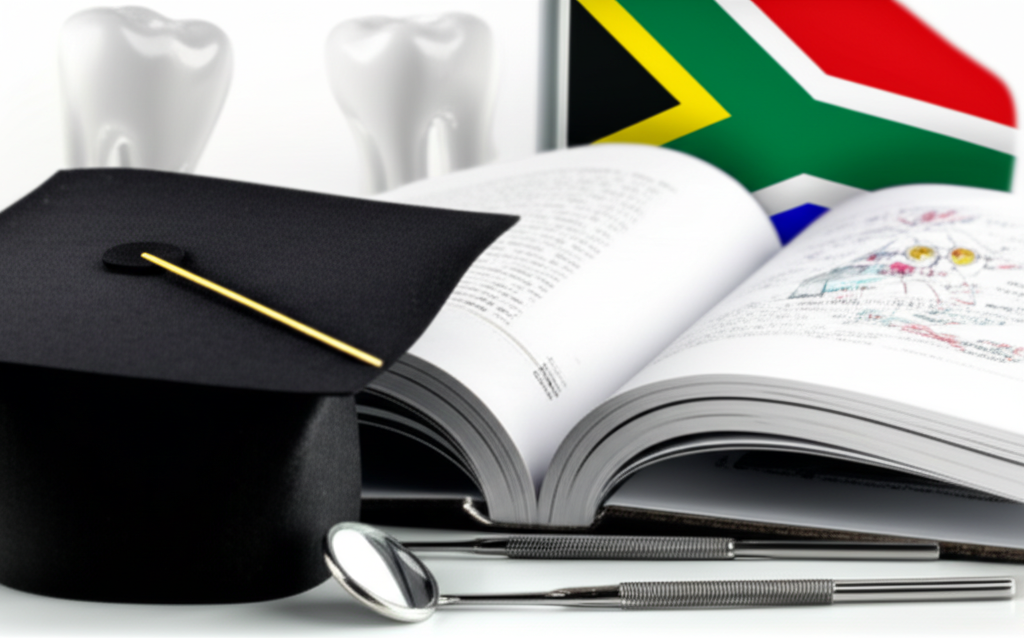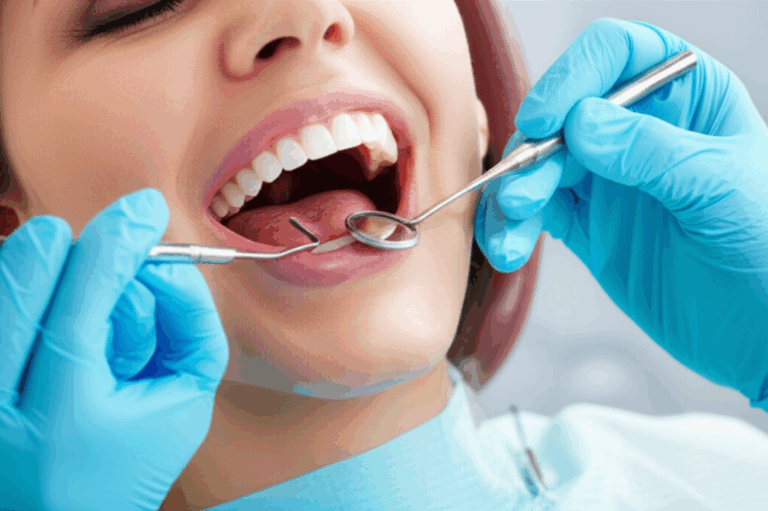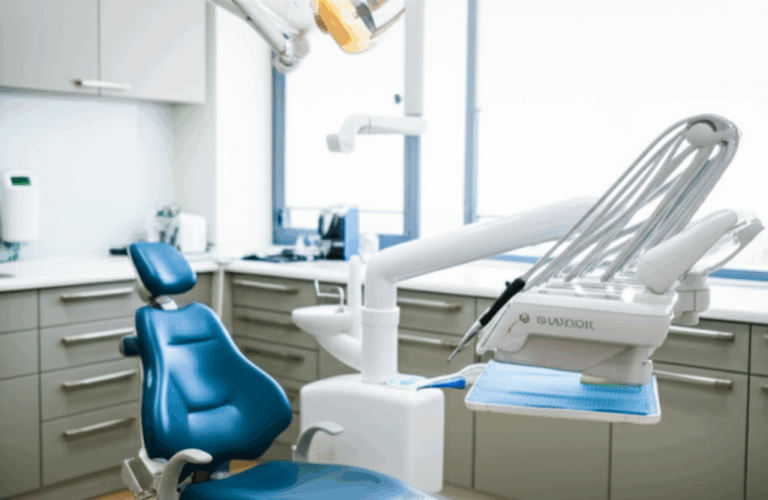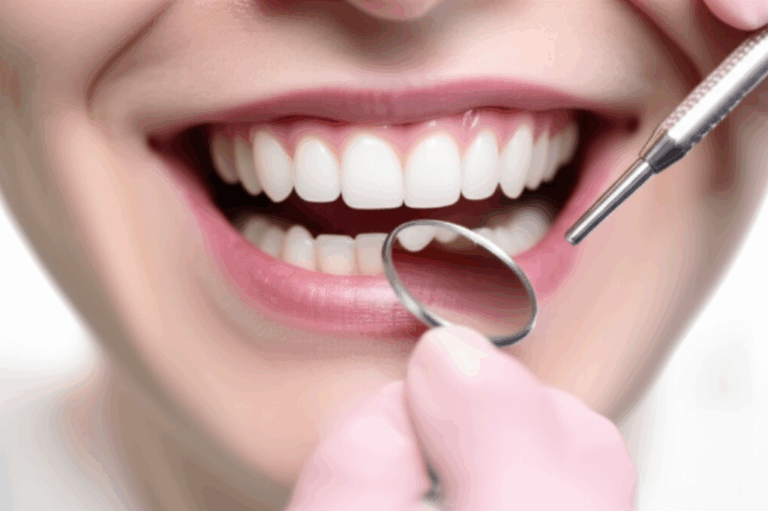
Your Comprehensive Guide to Becoming a Dentist in South Africa
Ever wondered how someone becomes a dentist in South Africa? Maybe you want a job where you help people smile, look after their teeth, and earn good money, too. Becoming a dentist can seem hard, but if you follow the right steps, you can make it. This guide will tell you everything you need to know—from what subjects to take at school to getting your first job. Keep reading, and you’ll find out how to turn your dream into real life!
Table of Contents
Why Choose Dentistry in South Africa?
Let’s think about problems first. Toothaches hurt. Gum sickness is common. Many people are scared of the dentist or just can’t find one near them. The need for tooth care in South Africa is big, especially in small towns or villages where dentists are hard to find. As a dentist, you help people smile and also stop pain and illness.
But is it for you? Dentists really matter in their neighborhoods. If you want a job that lets you help others, pay the bills, and learn new things all the time, this might be for you.
Dentists also get respect as trusted health workers. You can get jobs in big cities like Johannesburg, Cape Town, or Pretoria, or even run your own practice one day.
What Do You Need in High School?
Before you can fix a tooth, you need to do well at school. South Africa’s universities check your school subjects and your marks.
Subjects You Must Take
- English: You need Home Language or First Additional Language, because you must talk well with patients.
- Mathematics (Pure Maths): Do not take Maths Literacy—universities want Pure Maths at NSC Level 6 (70% or more).
- Physical Sciences: Physics and Chemistry help you learn about the body and things used in dental work. Try for 70% or more.
- Life Sciences (Biology): Teeth are part of our bodies, so knowing biology is super important.
Why Marks Matter
Good marks open the way to dental school. Most universities use your grades to give you an Admission Point Score (APS). Higher marks mean more points and a better chance to get in. Dentistry is hard to get into. Don’t just try to pass—try for top marks.
How Does the University Admission Process Work?
Getting into dental school is more than filling out a form. Here’s how it goes.
What is the APS, and How Do You Get It?
APS means Admission Point Score. Each subject you pass gives you points. For dentistry, you often need about 38–42 points. For example, Wits and UWC both want at least 40–42.
What Else Do Universities Check?
- National Benchmark Test (NBT): Some schools want this extra test.
- Interviews/Psychometric Tests: These look at things like steady hands or a friendly personality.
- Application Deadlines: Apply early. Spots fill up fast. Most schools want applications by June or July.
What to Get Ready
- Your National Senior Certificate (NSC) results
- Your ID book/card
- A letter saying why you want to be a dentist (sometimes needed)
Get set early and check when every university closes applications.
Which Universities Offer Dentistry Degrees?
Only a few universities in South Africa have approved dentistry courses. They are:
- University of the Witwatersrand (Wits)
- University of the Western Cape (UWC)
- University of Pretoria (UP)
- Sefako Makgatho Health Sciences University (SMU)
Each one does things a little differently, but all give you the Bachelor of Dental Surgery (BDS). All these degrees are OK’d by the Health Professions Council of South Africa (HPCSA).
These schools have good training, nice teachers, and “real world” experience. For example, at Wits, you start seeing real patients from your third year.
For those who want hands-on training, technology is getting bigger in dental schools, just like you’ll see at modern digital dental lab places.
What’s the Bachelor of Dental Surgery (BDS) Like?
So, what will you learn? The BDS is usually five to six years full-time.
Main Subjects
Here’s what your studies might look like:
| Year | Main Focus |
|---|---|
| Year 1-2 | Sciences (Anatomy, Physiology, Biochemistry) |
| Year 3 | Basic Dental Training (Oral Biology, Dental Materials) |
| Year 4-5 | Clinical Practice (You help real patients!) |
| Year 6 | Advanced Practice & Research |
You learn about teeth and gums, and also about the full human body. There’s medicine, X-rays, sickness, and more.
You’ll be in clinics, hospitals, or even small towns. Working with real people builds the skills you need later, from using small tools to making worried people feel better.
Doing the right thing, working well with others, and caring for patients are big parts of what you learn—it’s not just teeth! Good dentists care for people and follow rules.
What Happens After Graduation?
Getting your BDS is huge. But you have more to do.
Compulsory Community Service
As a new dentist, you must spend one year working in a government clinic or hospital. It’s a way to “give back” and learn more.
- Why Do This? It helps places with few dentists get care. You get good practice helping people who really need it.
- Where Will You Go? The health department tells you where you are needed.
Register with the HPCSA
After your year is done, you must sign up with the Health Professions Council of South Africa. You can only work as a dentist in South Africa if you are registered.
- Bring your degree, proof of your year of service, and other papers.
- Once you are registered, you can work anywhere in SA, or start your own office.
And remember—being a dentist means you must keep on learning, even after you finish studying. This is called Continuous Professional Development (CPD). New ideas come all the time!
What Jobs Can You Do as a Dentist?
Dentists don’t only drill teeth. Many doors open once you qualify.
Public vs. Private
- Public Dentists: Work in hospitals or clinics. You help people who really need it.
- Private Practice: Open your own business, or work with someone else. You work with people close-up and run your own company.
Specializing
Want to go further? You can specialize. This means more studying (3–5 years), but you’ll be an expert. You can pick:
- Orthodontics (fixing crooked teeth)
- Oral and Maxillofacial Surgery (mouth and face surgery)
- Endodontics (root canals)
- Periodontics (gums)
- Paediatric Dentistry (working with kids)
- Prosthodontics (false teeth, crowns, and more)
Specialists often use new tools and labs. For example, you might work with a zirconia lab for new teeth, or a dental ceramics lab for special crowns.
Other Work Options
Not everyone sticks to “normal” dentist work. Some teach, do studies, or even work to help solve crimes! You might work on dental health rules or help manage clinics.
How Much Does It Cost to Study Dentistry?
Becoming a dentist costs money, but you can get help.
Tuition Fees
- Yearly Fees: From R60,000 to R90,000 per year
- Living Costs: Also pay for food, place to stay, travel, books, and things you need for class
Funding
You don’t have to pay alone. Here are ways many students use:
- NSFAS (National Student Financial Aid Scheme): For families with less money.
- Bursaries/Scholarships: Given by the government, companies, or private people.
- Bank Loans: You pay these back when you start working.
Apply soon for bursaries—many close early!
Good tip: Some students try part-time work, but BDS work needs lots of time. Try focus on your studies first.
What Challenges and Rewards Will You Face?
Let’s be real—dentistry is not always easy.
The Hard Things
- Long Hours: As a student and later, too.
- Lots of Stress: Some patients are upset or their teeth are hard to fix.
- Costs Add Up: Tools and school fees can be high.
- Keep Learning: You’ll always need new skills.
The Good Parts
- Job Safety: Dentists are needed everywhere.
- Good Pay: Even new dentists earn good money, even more if you run your own office.
- Helping People: You make a real difference.
- Respect: People trust dentists.
- Lots of Choice: Work for yourself, at a hospital, or even in other places.
You’ll also work with other people—hygienists, assistants, dental technicians, and more. If you like team work and science, then this job could be for you.
Quick FAQ
Q: How many years does it take to become a dentist in South Africa?
A: Around 6–7 years—5 or 6 for BDS, plus one year to serve the community.
Q: Can I become a dentist if I did Maths Literacy?
A: No. You must have Pure Mathematics.
Q: How much do dentists earn?
A: In government jobs: R300,000–R500,000 for new dentists. Private practice can pay much more (R600,000–R1.5 million+), depending on where and your skills.
Q: Are there enough dentist jobs?
A: Yes, especially in areas outside cities. Tooth care is always needed.
Q: Can dentists study further?
A: Yes! Orthodontics, surgery, and more after extra learning.
Q: What if I like the newest tools and tech?
A: Many dentists work with top labs, like a digital dental lab or even 3D tech; special training helps here too.
Main Points to Remember
- Take Pure Maths, English, Physical Sciences, and Life Sciences at school, and aim for good marks.
- Only four universities in South Africa have approved dentistry degrees.
- The BDS takes 5–6 years, plus 1 year of work in the community.
- Apply early—good school marks and APS scores really help.
- Be ready to work hard, but the career is important, steady, and well respected.
- It can cost a lot, but help is out there with bursaries, NSFAS, and loans.
- Dentists can work for the government, for themselves, or study more to specialize.
- Every day, you’ll help people’s smiles and lives.
Reviewed by Dr. Joe Dental, BDS, HPCSA Registered Dentist
For more info on dental practical skills, check our dental practical guide.








